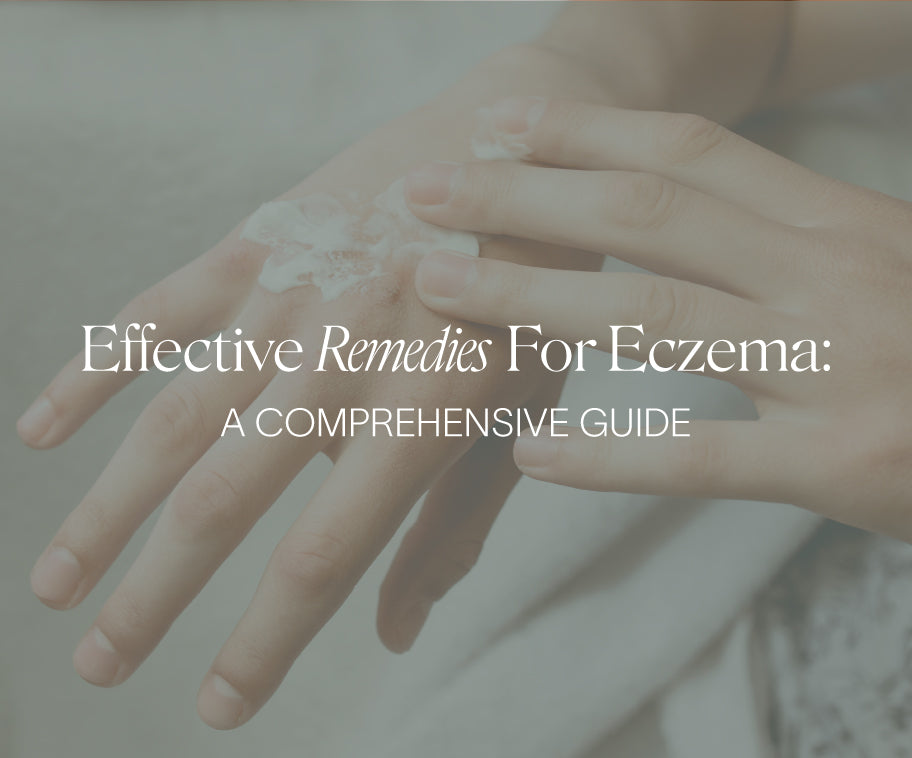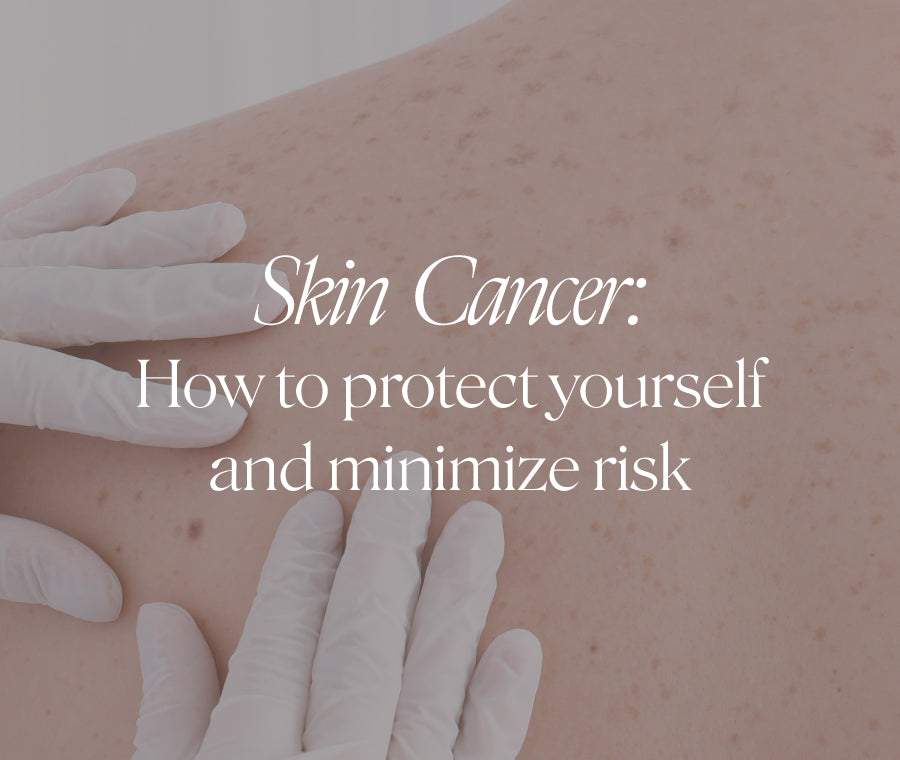There are a variety of treatments for eczema. This is a guide to understanding natural and at-home remedies, over the counter treatments, and also prescription treatments. First, treatments generally fall into one of two categories:
- Treatments aimed at restoring a healthy and intact skin barrier (ointments, creams, soaks).
- Treatments aimed at calming inflammation and the immune system (lifestyle, stress, diet, supplements and medications). In this blog I will delve into the best natural remedies, over the counter remedies, environmental considerations and prescription remedies.
Natural and At-Home Remedies for Eczema
There are a variety of home remedies that can ease discomfort and provide relief from the day to day symptoms of eczema. This includes castor oil, oatmeal baths, coconut oil, aloe vera, and sunflower seed oil. They serve as a safe and appropriate treatment to help restore the skin barrier and soothe angry skin.
OatmealOatmeal baths have long been used as a natural remedy for various skin conditions, including eczema. Oatmeal contains compounds that have anti-inflammatory and anti-itching properties that can help soothe irritated skin. The American Academy of Dermatology (AAD) suggests that colloidal oatmeal baths can reduce itching and redness in individuals suffering from eczema [1]. There are a couple ways you can do this. If a large part of your body is affected, you’ll want to do this in a bathtub.
Oatmeal Bath RecipeFirst, you'll want to get plain oats from the grocery store. Blend up a cup in a food processor so it becomes a nice and fine powder (colloidal). Then draw a lukewarm tub full of water and mix the oatmeal into the bath water. Don’t use hot water, as that is likely to irritate and dry you out further. Then soak yourself in the tub for 15-20 minutes. The colloidal oatmeal will hydrate the skin by creating a little bit of an occlusive barrier that will prevent the skin from drying out. An alternative method would be just to mix up a small batch with a tablespoon or two of colloidal oatmeal into a pot of warm water and use a gentle towel soaked in the mixture on a smaller area.
Castor Seed OilThis is my favorite home remedy, and is the key ingredient in the Healing Balm I made. It is rich in ricinoleic acid, a potent anti-inflammatory compound, and has remarkable properties beneficial for managing eczema symptoms. Studies indicate its ability to reduce inflammation, alleviate itching, and promote skin hydration, all that work to soothe discomfort. Additionally, its antimicrobial properties may help prevent secondary infections common in eczematous skin. Lastly, its emollient nature forms a protective barrier on the skin, aiding in moisture retention and enhancing the skin's natural healing process.
Coconut OilCoconut oil serves as a highly effective moisturizer for eczema patients and is likely to soothe irritated skin due to its anti-inflammatory properties. The fatty acids present in coconut oil can help hydrate the skin and improve its barrier function, which is often compromised in eczema. According to research, it has been shown that coconut oil is effective in minimizing the effects of inflammation and forms a protective coating for preventing irritants from contact with the skin [2]. It is a promising option to cope with the symptoms of eczema as regularly applying coconut oil yields effective results, heals irritated skin, and prevents dryness and intense itching.
Sunflower Seed OilThis home remedy is also great for managing eczema symptoms. It consists of fatty acids and antioxidants that help the skin maintain hydration, alleviate inflammation, and stimulate the overall integrity of the skin [2]. Routine use will have a noticeable impact on one's skin health as it prevents flare-ups by soothing skin symptoms like redness, itching, and dryness.
Oils can be messy to deal with. I recommend applying to your skin after bathing or before bed and sleeping in old pajamas to keep the oils on your skin and not on your sheets.
Aloe VeraAloe vera is a plant known for its soothing and healing properties, making it a popular natural remedy for various skin conditions, including eczema. It is widely used for improving one's skin integrity which is why it is highly recommended for eczema patients. Aloe Vera consists of a gel, which is rich in certain substances that can hydrate broken, scaly, and dry skin, alleviate the adverse effects of inflammation, and fight off bacteria. A research-based study shows that aloe Vera can help relieve itching and dryness associated with eczema [2]. Yet, it often comes in a gel form that can be drying to the skin. Therefore, after the application of Aloe Vera, make sure to use a moisturizer or one of the oils above to prevent further irritation of your skin.
Over-the-counter remedies for Eczema
Hydrocortisone CreamHydrocortisone cream is a topical corticosteroid widely used to reduce redness and itching associated with eczema. Hydrocortisone cream has been shown to effectively alleviate eczema symptoms by suppressing the immune response in the skin and reducing inflammation (5). It is often recommended as a first-line treatment option for managing eczema flare-ups. In the United States, over-the-counter (OTC) hydrocortisone creams are typically available in strengths ranging from 0.5% to 1%. Often the ointment form stings less than the cream form and after applying always follow with a moisturizer.
AntihistaminesAntihistamines are oral medications (ex Zyrtec, Benadryl, Allegra, Claritin, Xyzal) that block the effect of the signaling chemical histamine that is made by our body. When histamine is activated, it leads to a cascade of events on a cellular level that can lead to inflammation. Antihistamines can effectively relieve itching caused by eczema, improving the overall comfort of individuals with this condition. You need to take it on a daily basis for at least 30 days for significant improvement in symptoms.
Creams for EczemaMoisturizing lotions and creams containing ceramides are essential for individuals with eczema as they help repair the skin barrier, retain moisture, and prevent dryness. They help to retain moisture giving a hydrating effect on the affected area, strengthening the skin barrier, stimulating skin health, and improving its integrity. Studies suggest that such moisturizers when used regularly help manage the symptoms of eczema as they reduce the potential risk of exacerbation by relieving inflammation and dryness. The Body Cream I formulated is loaded with ceramides for this exact reason. It is a great daily maintenance cream for eczema sufferers. The moisturizer you use should be allergen free and also free of irritants that can actually cause more harm than good. You’d be surprised how many moisturizers are actually bad for eczema. Avoid anything with fragrances, alcohol, parabens, sulfates, formaldehyde-releasing preservatives, lanolin, and essential oils. Also you want to pick creams over thinner lotions because thicker products are better at preventing water loss and repairing the skin barrier.
Healing BalmsThese are ointments that are aimed at helping heal a damaged skin barrier during a severe flare. There are many products on the market, including CeraVe, Eucerin, Aquaphor, Vaseline, Aveeno, and Restore Healing Balm. The goal of these is to lock in moisture, draw in hydration, calm the need to itch, and protect the new skin cells as they mature and try to heal the area. Each of these have things to consider when you are deciding what product to use.
Prescription Remedies for Eczema
Prescription medications offer targeted treatment options for individuals with moderate to severe eczema. These are generally intended to calm the immune system that is driving the inflammatory process and less about restoring the skin barrier directly.
Topical CorticosteroidsThey are topical creams and ointments that are generally used to manage eczema. Their working principle is such that they inhibit the natural immune response in the skin resulting from eczema, preventing redness, swelling, and itching. These would be stronger than OTC Hydrocortisone cream, which maxes out at 1%. They come in various strengths and formulations as you can see here.
Calcineurin InhibitorsThese are generally prescribed for treating moderate to severe forms of eczema. Their mechanism involves altering the immune system to relieve the symptoms of eczema. While these medications can effectively ease redness and itching, there have been concerns about potential risks such as skin cancer and lymphoma with long-term usage, so the FDA issued a special warning for them [12]. Examples of this include Tacrolimus (Protopic) and Pimecrolimus (Elidel).
Oral Corticosteroids (for Severe Cases)Oral Corticosteroids are prescribed to treat severe forms of eczema, specifically when all other topical treatments have failed. They are the strongest medications as they contain powerful anti-inflammatory agents to relieve inflammation. However, these oral medications pose potential side effects that can vary in severity. As a consequence, they are given to patients for a limited duration of time and that too is carefully supervised by the healthcare professionals to ensure such potential risks are avoided. Examples include Prednisone, Prednisolone, Methylprednisolone and Dexamethasone.
BiologicsBiologic drugs are a newer class of medications that are essentially like antibodies. They target specific components of the immune system that drive inflammation and render them inert. These drugs, administered orally or through injections or infusions, help calm the immune response, alleviate inflammation, and improve eczema symptoms. FDA has approved two such drugs dupilumab and tralokinumab for the treatment of atopic dermatitis. These have shown success with lesser risk of side effects and complications compared to older treatment methods and medications [15].
Environmental Factors that can impact Eczema
Avoiding Triggers
Several triggers such as detergents, soaps, house dust, and certain clothing materials such as synthetic fibers, and other environmental factors can increase the risk of getting affected by eczema.
- Dry air: Low humidity levels can lead to dry skin, which may worsen eczema symptoms.
- Cold weather: Exposure to cold temperatures can cause the skin to become dry and irritated, triggering eczema flare-ups.
- Hot weather: Excessive sweating in hot weather can aggravate eczema, leading to itchiness and irritation.
- Harsh soaps and detergents: Chemicals present in soaps, detergents, and household cleaners can strip away the skin's natural oils, leading to dryness and exacerbating eczema. Watch out for the biggest offenders, like sodium lauryl sulfate (SLS), fragrances, parabens, formaldehyde-releasing preservatives, and propylene glycol.
- Allergens: Common allergens such as dust mites, pet dander, pollen, and mold can trigger allergic reactions in eczema-prone individuals, leading to flare-ups.
- Irritants: Irritants such as cigarette smoke, air pollution, and certain fabrics (e.g. wool or synthetic materials) can irritate the skin and worsen eczema symptoms.
- Stress: Emotional stress and anxiety can weaken the immune system and trigger inflammation, potentially worsening eczema flare-ups.
- Excessive bathing or swimming: Prolonged exposure to water, especially hot water, can strip the skin of its natural oils, leading to dryness and exacerbating eczema symptoms. Try to minimize bathing to less than once a day, use lukewarm water and always follow with a moisturizing cream.
- Scratching: Scratching the affected skin can further damage the skin barrier and lead to increased inflammation and itchiness.
- Certain foods: While less common, some individuals may experience eczema flare-ups due to food allergies or sensitivities. Common trigger foods include dairy, eggs, nuts, and wheat.
As previously discussed, eczema can also be triggered by environmental factors, generally dry air. Dry air irritates the skin. Therefore, a humidifier can be used that helps reduce the dryness by increasing the level of moisture in the air. The humidifiers play an important role in the management of eczema, preventing flare-ups by ensuring that humidity levels are maintained properly. Make sure to keep it clean, as they can grow molds over time.
Stress Management TechniquesStress has also been regarded as one of the triggers that can result in flare-ups of eczema symptoms. It is because during stress, there's a spike in the generation of a hormone known as cortisol which exacerbates this skin condition. It is, therefore, important to exercise stress management and implement effective techniques to lower stress levels. They generally include an adequate amount of healthy sleep, exercise, meditation, mindfulness, and relaxing one's muscles. Stress Management techniques are crucial for elevating overall quality of life.
Sign-up HERE for our newsletter to receive access to expert skin care advice from founder and dermatologist Dr. Heather D. Rogers, MD.
Citations
Natural Remedies for Eczema Over-the-counter remedies for Eczema At-Home Remedies for Eczema Prescription Remedies for Eczema
The information provided by Dr. Rogers is general health information inspired by this topic. The information in the Doctor Rogers web site, and related links, articles, newsletters and blogs, is provided for general information and educational purposes only. It should not be a substitute for obtaining medical advice from your physician and is not intended to diagnose or treat any specific medical problem (and is not an extension of the care Dr. Rogers has provided in her office for existing patients of her practice). Use the information and products on this site at your own risk. Use of this site indicates your agreement with these statements and the Terms and Conditions of Doctorrogers.com. If you do not agree to all of these Terms and Conditions of use, please do not use this site! Never ignore your own doctor’s advice because of something you read here; this information is for general informational purposes only. There is no doctor patient relationship implied.



